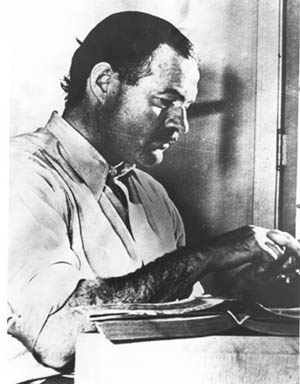Speaking before a group, one of our worst fears, becomes less threatening when you realize that your audience cares a lot less about you than you think. Behind the faces out there are a lot of thoughts: the grocery list, the anxiety over a funny look from the boss that morning, the kid's grade in algebra, and the like.
If you feel better, don't: the same thing makes it harder for you to get your ideas in their heads.
Nick Morgan, president of a communications consulting firm, has two simple
rules. 1. Know thy audience. 2. Tell them one thing, and one thing only.
Presentations are about their audiences, not their speakers. Before you write anything down, or commit anything to a Power Point slide, you must give some thought to your listeners. So ask yourself obvious — but easy to forget — questions like, what time of day am I speaking? How many people will be in the audience? Will they just have eaten, or will they be looking forward to a meal? Will they have heard a number of other speeches, or is mine the only one? The answer to each of these questions should affect the length, style and content of your presentation.
People have more energy and more ability to hear complex ideas early in the day; later in the day their energy flags and they don't want to entertain as many new ideas. Larger audiences demand more energy from the speaker and want to laugh more than they want to cry. The worst audience (from the speaker's point of view) is a tired, fed, slightly inebriated audience.
At one stage in my career, I delivered a number of after-dinner talks to audiences of advertisers in the publication where I was an editor. The host, our publisher, and I had an agreement: I would speak after the salad course. That allowed me to enjoy my dinner -- my primary motivation -- but it also meant the crowd wasn't as sleepy as it would be after a full meal.
Here's a way to remember this rule. Imagine that you speak only English and your audience speaks only Mandarin. How effective are you going to be? Now imagine what other barriers exist between you and them. Your business jargon, your point of view (you think environmentalists are nut jobs, and this is the monthly meeting of the local chapter of Greenpeace).
In my case, I represented The Reader's Digest, and my audiences were young, hip wear black and take your dog to work Madison Avenue types. If it Reader's Digest had any meaning to them, it was the thing that sat on the back of the commode at Grandma's house. So I turned that to my advantage, making fun of the magazine, which I could, given my standing there, and gradually bringing them around, I hoped, to an appreciation of it. Using their point of view, their language, their interests.
You can remember the second rule this way. Imagine a conversation with someone in which he or she is telling you far more than you can absorb. TMI. An electrician came the other day to fix a circuit that was out, and he was explaining what he was doing, and it was a tangle of neutral this, and breaker that, and I was lost. Don't do that to your audience, Morgan says.
The oral genre is highly inefficient. We audience members simply don't remember much of what we hear. We're easily sidetracked, confused, and tricked. We get distracted by everything from the color of the presenter's tie to the person sitting in the next row to our own internal monologues.
Keep it simple, stupid. TMI bad. KISS good.









